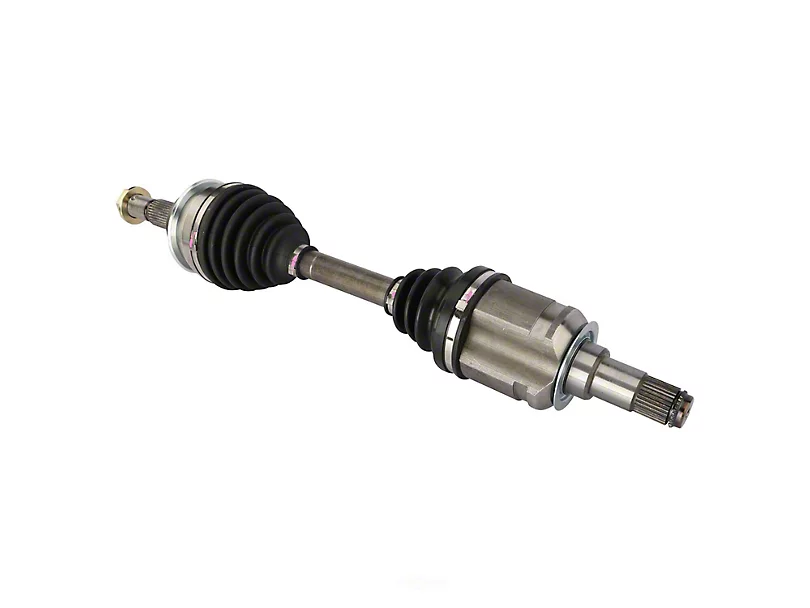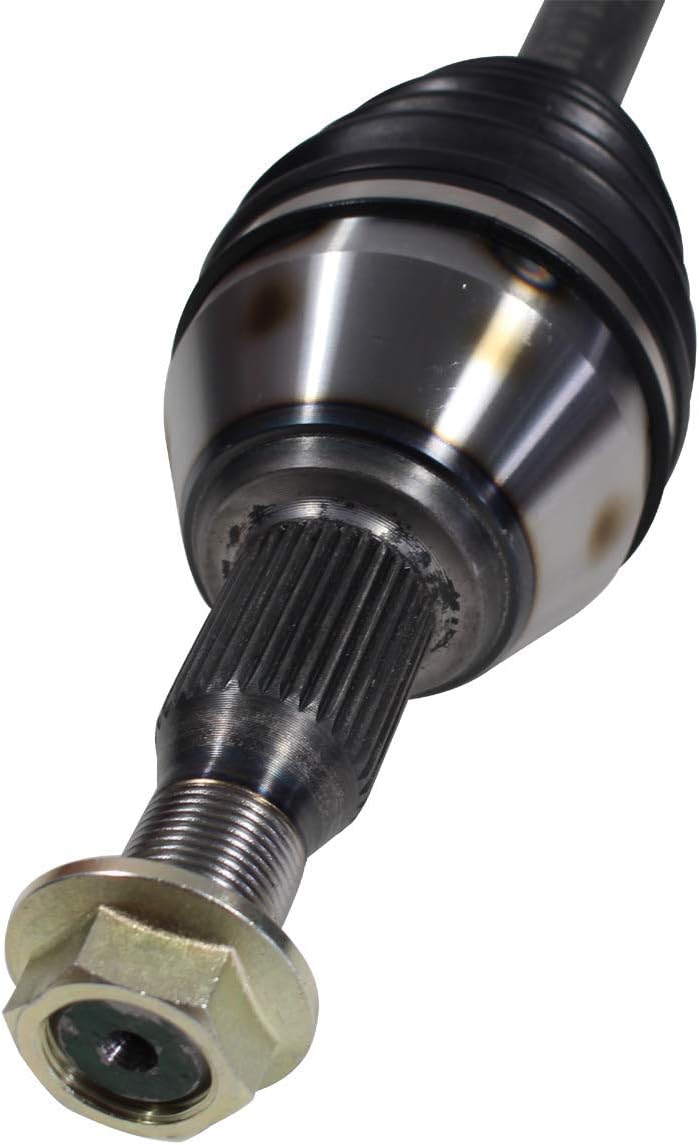Product Description
| If you are interested in this product or have any questions, please click “Send Inquiry” or “Contact Supplier” for more information, get the product catalog and preferential price, our professional will communicate with you. | |||||
Product Description
1.We are manufacturer of cv drive shaft,cv axle, cv joint and cv boot, we have more than 20-years experience in producing and selling auto parts.
2.We have strict quality control, the quality of our products is very good.
3.We are professional in different market around the world.
4.The reviews our customers given us are very positive, we have confidence in our products.
5.OEM/ODM is available, meet your requirements well.
6.Large warehouse, huge stocks!!! friendly for those customers who want some quantity.
7.Ship products out very fastly, we have stock.
| Product Name | Drive shaft | Material | 42CrMo alloy steel |
| Car fitment | Hyundai | Warranty | 12 months |
| Model | Elantra | Origin | ZHangZhoug, China |
| year | 2008-2571/2011-2016 | MOQ | 4 PCS |
| OE number | 49501- 0571 1 | Delivery Time | 1-7 days |
| OEM/ODM | Yes | Brand | GJF |
| Packing size | 0.74*0.26*0.26 | Payment Methods | L/C,T/T,western Union,Cash,PayPal |
| Sample service | Depends on the situation of stock | Weight | About 3.7kg-14.5kg |
Detailed Photos
Customer Review
Packaging & Shipping
FAQ
/* May 10, 2571 16:49:51 */!function(){function d(e,r){var a,o={};try{e&&e.split(“,”).forEach(function(e,t){e&&(a=e.match(/(.*?):(.*)$/))&&1

What are the environmental considerations of recycling CV axles and related components?
When it comes to recycling CV axles and related components, there are several environmental considerations to take into account. Here’s a detailed explanation of the environmental aspects associated with recycling CV axles:
1. Metal Recycling:
CV axles and related components are typically made of various metals, such as steel and aluminum. Recycling these metals offers significant environmental benefits. Metal recycling reduces the need for extracting and processing raw materials, which helps conserve natural resources and reduces energy consumption. Additionally, recycling metals helps minimize the environmental impact associated with mining and refining processes, including habitat destruction, water pollution, and greenhouse gas emissions.
2. Hazardous Materials:
CV axles may contain hazardous materials or substances that require proper handling and disposal. For example, some axle components may have coatings or finishes that contain heavy metals or other toxic substances. When recycling CV axles, it’s important to follow proper procedures to remove and dispose of any hazardous materials safely. Recycling facilities and scrap metal yards have established protocols to handle hazardous materials to minimize their impact on the environment and human health.
3. Waste Reduction:
Recycling CV axles and related components contributes to waste reduction. Instead of ending up in landfills, these items can be processed and reused, reducing the amount of waste generated. By diverting CV axles from the waste stream, recycling helps conserve landfill space and reduces the potential for environmental contamination. It also reduces the need for new manufacturing, which further conserves resources and reduces associated environmental impacts.
4. Energy Savings:
Recycling CV axles and their components saves energy compared to producing new materials from virgin resources. The recycling process typically requires less energy compared to the extraction, refining, and manufacturing processes involved in producing new metal components. By recycling CV axles, energy consumption and associated greenhouse gas emissions can be reduced, contributing to a lower carbon footprint and mitigating climate change.
5. Proper Disposal:
In cases where CV axles or their components cannot be recycled due to damage or contamination, proper disposal becomes essential. It’s important to adhere to local regulations and guidelines for disposing of these items. Improper disposal can lead to environmental contamination, including soil and water pollution. Working with certified recycling facilities or scrap metal yards ensures that disposal is carried out in an environmentally responsible manner.
6. Extended Product Life Cycle:
Recycling CV axles and related components extends the product life cycle, reducing the need for new production. By reusing materials and components, the environmental impact associated with manufacturing new parts is minimized. Extending the life cycle of CV axles through recycling promotes resource conservation and reduces the overall environmental footprint of the automotive industry.
In summary, recycling CV axles and related components offers several environmental benefits. It conserves natural resources, reduces energy consumption, minimizes hazardous material disposal, promotes waste reduction, and contributes to a lower carbon footprint. Proper recycling and disposal practices play a crucial role in ensuring that these components are handled in an environmentally responsible manner, mitigating their impact on the environment and human health.

What are the signs of a worn CV joint, and how does it relate to the CV axle?
A CV joint is an essential component of a CV axle, and understanding the signs of a worn CV joint is crucial for identifying potential issues with the CV axle. Here’s an explanation of the signs of a worn CV joint and how it relates to the CV axle:
Signs of a Worn CV Joint:
1. Clicking or Popping Noises: One of the most common signs of a worn CV joint is a clicking or popping noise when turning. This noise is typically heard during low-speed maneuvers, such as when making a sharp turn or navigating a parking lot. The clicking or popping sound is caused by excessive play or looseness in the CV joint due to worn or damaged internal components.
2. Vibrations or Shuddering: A worn CV joint can cause vibrations or shuddering sensations, particularly during acceleration. This may be felt in the steering wheel, floorboard, or even the entire vehicle. The vibrations can occur due to an imbalance caused by a damaged CV joint, resulting in an uneven transfer of power to the wheels.
3. Grease Leakage: CV joints are packed with grease to lubricate the internal components and reduce friction. If a CV joint is worn or damaged, it may cause the grease to leak out. This can be observed as grease stains or splatters around the CV joint or on the inner side of the wheels. Grease leakage is a clear indication of a faulty CV joint that requires attention.
4. Torn CV Boot: The CV joint is protected by a rubber boot that seals in the grease and shields the joint from contaminants. A torn or damaged CV boot exposes the CV joint to dirt, debris, and moisture, leading to accelerated wear and potential damage. Inspecting the CV boots regularly and looking for any signs of tears or cracks is essential in identifying potential CV joint issues.
Relationship between CV Joint and CV Axle:
The CV joint is a critical component of the CV axle assembly. The CV axle, or constant velocity axle, is responsible for transmitting power from the transmission or differential to the wheels while allowing for flexible movement due to its jointed design. The CV joint is located at either end of the CV axle and connects it to the wheel hub assembly.
The CV joint enables the CV axle to transfer power smoothly to the wheels, even when the suspension moves up and down or when the wheels turn during steering. It allows for a constant velocity, hence the name “constant velocity joint.” The CV joint is designed with a ball-bearing or tripod-style mechanism that allows for articulation and rotation while maintaining a consistent speed and torque delivery to the wheels.
However, over time, the CV joint can wear out due to the constant movement, high loads, and exposure to contaminants. When a CV joint becomes worn or damaged, it can affect the overall performance and reliability of the CV axle. If left unaddressed, a worn CV joint can lead to further damage to the CV axle, potentially resulting in complete failure and loss of power transmission to the wheels.
Therefore, it’s crucial to pay attention to the signs of a worn CV joint and address them promptly by inspecting and replacing the affected CV axle or performing necessary repairs. Regular maintenance, including visual inspection of CV boots and listening for any abnormal noises during operation, can help detect CV joint issues early and prevent further damage to the CV axle assembly.

Are there aftermarket CV axles known for enhancing performance or durability?
Yes, there are aftermarket CV axles available that are known for enhancing performance or durability beyond the original equipment manufacturer (OEM) specifications. These aftermarket options often cater to specific needs, such as high-performance applications or heavy-duty usage. Here’s an explanation of some aftermarket CV axles known for enhancing performance or durability:
- Performance CV Axles: Some aftermarket manufacturers specialize in producing performance-oriented CV axles designed to handle increased power and torque. These axles may feature upgraded materials, such as stronger alloys or heat-treated components, to improve strength and durability. Performance CV axles may also incorporate design modifications to enhance torque transfer and reduce power loss, resulting in improved acceleration and responsiveness.
- Heavy-Duty CV Axles: For vehicles subjected to heavy loads or off-road conditions, there are aftermarket CV axles available that offer enhanced durability and strength. These heavy-duty axles are designed to withstand higher levels of stress and abuse compared to standard OEM axles. They often feature reinforced components, larger CV joints, and thicker shafts to handle the increased demands of towing, hauling, or traversing challenging terrains.
- Upgraded CV Axle Kits: Some aftermarket manufacturers offer complete CV axle upgrade kits that include not only the axles but also other complementary components. These kits may include upgraded CV joints, boots, clamps, and grease specifically designed for improved performance and longevity. By replacing multiple components together, these upgrade kits ensure compatibility and provide a comprehensive solution for enhancing the durability and performance of the CV axles.
- Specialty CV Axles: In certain niche markets or specific vehicle applications, there are aftermarket manufacturers that cater to unique needs. For example, there are aftermarket CV axles available for modified or custom-built vehicles that require non-standard axle lengths or angles. These specialty axles are designed to accommodate specific suspension setups or drivetrain modifications, ensuring optimal performance and durability in those specific applications.
It’s important to note that while aftermarket CV axles can offer enhancements in terms of performance or durability, there can be variations in quality and reliability among different aftermarket brands. It’s advisable to research and choose reputable aftermarket manufacturers that have a proven track record of producing reliable and high-quality products. Reading customer reviews, consulting with automotive experts, and seeking recommendations from trusted sources can help in identifying aftermarket CV axles that are known for enhancing performance or durability.
Furthermore, it’s crucial to ensure that any aftermarket CV axles chosen are compatible with your specific vehicle make, model, and drivetrain configuration. Proper installation, following manufacturer guidelines, and regular maintenance are essential to maximize the performance and durability benefits offered by aftermarket CV axles.


editor by lmc 2024-11-05